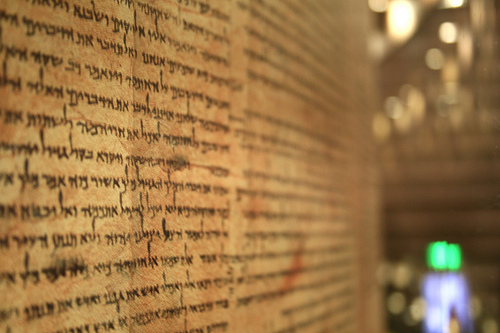the Poetry and Puns of Isaiah

In the overview of Isaiah, we noted that the book contains both poetry and prose. In most modern bibles, the poetry sections are indicated with indented lines, while the prose sections are formatted in paragraphs.
However, when we read the poetry sections, we might be puzzled by the lack of rhymes that are much more prominent in English poetry. Rather than rhymes, Hebrew poetry is typically structured around 'parallelisms', where groups of lines say similar things in different words. They have the effect of emphasising and developing themes or highlighting contrasting ideas.
We see this in Isaiah 5:7:
The vineyard of the Lord Almighty
is the nation of Israel,
and the people of Judah
are the vines he delighted in.
'Vineyard' and 'Nation of Israel" in the first line parallel 'Vines' and 'People of Judah' in the second line.
Hebrew poetry also uses other phonetic devices like puns. An example of this is in the last part of Isaiah 5:7:
He looked for justice (mišpat) but saw bloodshed (mispah)
for righteousness (s'daqa) but heard cries of distress (s'aqa).
The contrasting words sound similar - maybe like (but no where near as good as Isaiah):
'I looked for goodness but saw genocide
for care but saw callousness'
These phrases would have been memorable and stuck in people's minds. Unfortunately most of these puns don't survive translation and that is why commentaries are helpful. But even if you don't have access to commentaries, parallelisms DO survive translation. So as you are reading Hebrew poetry in Isaiah (and other places like the psalms), look for parallelisms and reflect on their poetic effect.
If you want to read a bit more about this, I wrote a blog about hebrew poetry in regard to Psalm 88 back in 2010.
David Wanstall, 11/07/2017